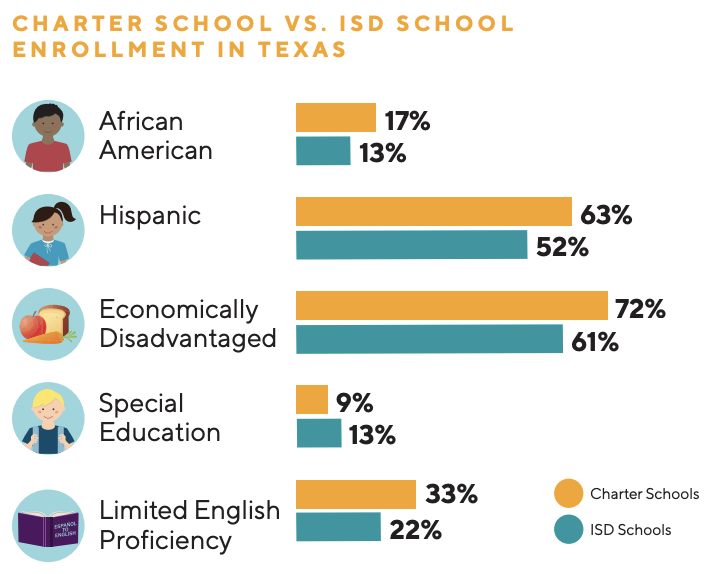Public charter schools are raising achievement for students from all backgrounds:
• Seven of the 10 highest-rated school districts in Texas are charter school districts
• 78% of public charter school graduates in 2022 were college, career, or military ready, compared to a statewide average of 66%
• Studies show that charter school students in Houston, San Antonio, and Austin achieved more than one month’s worth of extra reading and math progress in a single year, compared to students with similar demographics statewide
• Traditional districts with public charter schools in their boundaries are more likely to improve. Over three years (from 2019 to 2022), 99% of ISDs with charter schools boosted students’ ELA/Reading STAAR scores in all grades — compared to 92% of ISDs without charters


